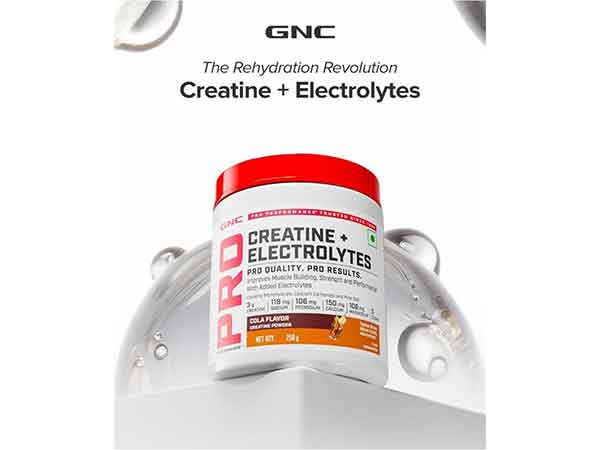
Trump boosts bid after Helene
Oct 02, 2024
Washington [US], October 2: Donald Trump is using the destruction of Hurricane Helene to boost his presidential bid against Kamala Harris, political analysts said on Tuesday, after the Republican candidate spread falsehoods about the federal response during a visit to a storm-hit city.
Trump is leveraging the potential political danger of the hurricane to the presidential campaign of Democrat Harris, his 2024 White House rival, the analysts said.
Trump visited the city of Valdosta in the battleground state of Georgia on Monday and falsely stated that Democratic President Joe Biden had been unresponsive to the hurricane's destruction. Harris is also Biden's vice president.
Trump said he brought "truckloads of things" to Georgia, including oil, water and equipment, and that he partnered with evangelical Christian leader Franklin Graham's relief organization to deliver them.
Natural disasters have damaged U.S. administrations in the past and Trump is trying to tie Harris to this hurricane, which tore through the U.S. Southeast including the battleground states of Georgia and North Carolina, said Andrew Reeves, a professor at Washington University in St. Louis who has studied how natural disasters affect U.S. politics.
Georgia and North Carolina will play a key role in the outcome of the Nov. 5 election between Trump and Harris. North Carolina's hardest-hit area, Buncombe County, voted for Biden in 2020, while most of the other counties in the western part of the state went to Trump.
Georgia's Lowndes County, where Valdosta is located, voted for Trump in 2020. But even a few thousand votes in each state could decide which presidential candidate wins those states and potentially determine the outcome of the White House race.
More than 3,500 federal workers are involved with response efforts in affected states, according to the White House.
Analysts said it was abnormal for a presidential candidate who is not in office to visit a disaster area.
Natural disasters, especially hurricanes, have shaped U.S. politics in recent years and could alter the course of the race this year as well, said Stuart Rothenberg, a nonpartisan political analyst.
It is not the first time Trump has sought to use a disaster for political gain. While visiting the site of a toxic train derailment in Ohio in 2023, Trump criticized the Biden administration's response as a "betrayal."
Presidents and presidential candidates usually do not visit a storm-hit region immediately because of fears they will distract from rescue efforts and drain resources from local law enforcement officials and emergency responders.
Biden said he would visit North Carolina on Wednesday and Georgia and Florida soon after. He may also ask Congress to return to Washington for a special session to pass supplemental aid funding.
Harris has also said she intends to visit the area soon.
Leavitt declined to say how the funds will be spent.
In 2019 a New York state judge ordered Trump to pay $2 million for misusing his namesake charitable foundation, resulting in funds being used to advance his 2016 presidential campaign. Trump defended the charity at the time, saying the foundation was an "incredibly effective philanthropy" that had made "some small technical violations."
The Harris campaign did not immediately respond to a request for comment on Tuesday.
In Georgia, Trump falsely claimed that Brian Kemp, Georgia's Republican governor, "was having a hard time" getting Biden on the phone.
Kemp told reporters that Biden had called him the evening before and said he was grateful for the federal assistance Biden had offered.
Biden said Trump had been lying.
Reeves' research has found that sitting presidents received a modest bump of half a percentage point when they approved disaster aid close to their reelection.
During Trump's 2017 visit to San Juan, Puerto Rico, after Hurricane Maria, the then-president threw rolls of paper towels into a crowd of local residents impacted by the storm. The move drew criticism from some local officials.
While campaigning for reelection in 2012, President Barack Obama joined Republican Governor Chris Christie to tour parts of New Jersey that were affected by superstorm Sandy. Christie was at the time a top defender of Obama's Republican rival, Mitt Romney.
Republican President George W. Bush's approval ratings fell after Hurricane Katrina devastated New Orleans in 2005 and never recovered.
Source: Fijian Broadcasting Cooperation









